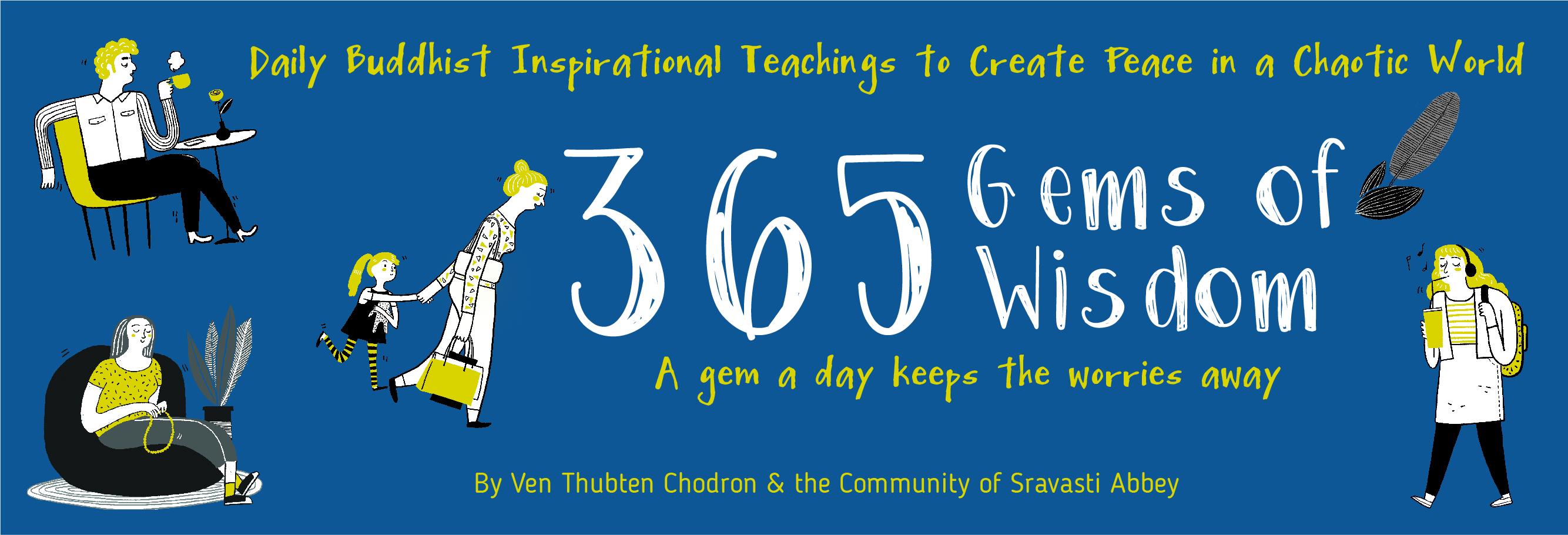November 18 : Selflessness
We might think we are all the elements put together with consciousness — the combination of the aggregates. But if none of these parts is the person, how can you come up with a person by putting a bunch of non-persons together? That would be like putting six oranges together and getting a banana, it is not going to work. Part of your mind may say, “Well, if we arrange all the parts in a specific way, that will be ME.” But even if the parts are put together in a certain way, they are still a bunch of things that are not persons. The only conclusion is that the person does not exist inherently. In other words, there is no inherently existent person.
This insight has a powerful impact on you when you notice how you think you exist, and how the “I” appears. You start with a clear perception of the object of negation and how strongly you feel it exists, so when you realise that you do not exist in any of those ways, there is the feeling, “My goodness, everything I have based my whole life on is not there.” If we look, day in and day out we are basing our lives on the assumption that there is a real me. And because there is a real me, I have a right to pursue the things that make me happy, and I have a right to clobber people and things that interfere with my happiness. There are people who are better than I am, so I am jealous of them. There are people who are worse than I am, so I am arrogant towards them. If I do not feel like doing something, I just will not. The rationale for all the afflictions centre around this idea of there being a findable person who must be protected and is entitled to every happiness in the universe without compromising anything.
It can be surprising when you realise that the basis upon which we do everything in life is not findable. But it is a good kind of a surprise because if there is no inherently existent person, there is nobody you must defend when someone criticises you. Whose reputation are you going to be worried about if you cannot find anything solid or concrete? You can also dissect your reputation by thinking about the selflessness of phenomena. A reputation is just other people’s opinions, and of what value? Can you even find their opinions, and do they ever change?
How long do their opinions last? Then we realise, “What am I getting so upset about?” When you think about death, you will not have to freak out because you can see that there is no solid, concrete person that is going to die. In this way, we can begin to see how understanding emptiness can really relieve us of the pain caused by the afflictions.
“365 Gems of Wisdom” e-book is out now!

